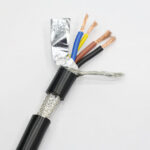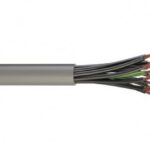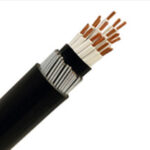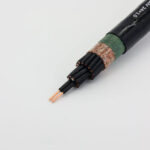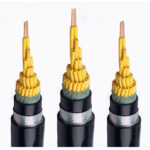A domestic wire refers to any type of electrical wire used for power distribution inside residential buildings. These wires are designed to safely carry electricity to outlets, lights, and appliances, and must meet local safety and voltage standards. Domestic wiring typically involves copper conductors, PVC insulation, and standardized color coding for easy installation.
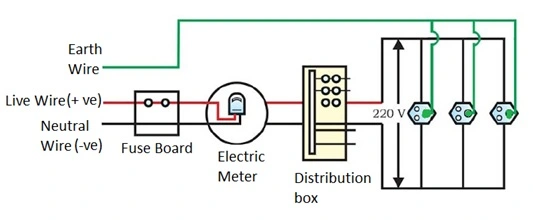
What Is a Domestic Wire
If you’re planning electrical work at home or simply want to understand how household wiring works, this guide breaks down the key features, types, and best practices for domestic wire.
🏠 What Is a Domestic Wire?
A domestic wire is an insulated conductor used to transmit electricity within a home. It connects your main electrical panel to switches, sockets, lights, air conditioners, and more. These wires are optimized for low- to medium-voltage applications (usually 300V to 750V), and must be flame-retardant, durable, and safe for indoor use.
Domestic wire is a subcategory of building wire, but is specifically designed for the residential environment.
🔌 Common Types of Domestic Wire
| Wire Type | Description | Typical Application |
|---|---|---|
| Flat Twin & Earth (T&E) | Two insulated conductors plus one bare earth wire | Lighting, general circuits |
| Flexible Wire | Stranded, bendable wires with soft insulation | Appliances, lighting |
| Single Core Wire | One conductor, often used inside conduits | Switches, junction boxes |
| Multicore Cables | Multiple cores in one sheath | Fans, geysers, A/C units |
| NM-B Cable (North America) | Non-metallic sheathed cable (e.g., Romex) | General residential wiring |
⚙️ Common Conductor Sizes and Their Uses
| Size (mm²) / AWG | Typical Use in Homes |
|---|---|
| 1.0 mm² / 17 AWG | Lighting circuits (low current) |
| 1.5 mm² / 15 AWG | Lighting, fans |
| 2.5 mm² / 13 AWG | Power sockets, kitchen outlets |
| 4 mm² / 11 AWG | Air conditioners, water heaters |
| 6 mm² / 10 AWG | Main power feeds for small apartments |
🧯 Safety Standards for Domestic Wiring
Domestic wire must meet national and international safety standards. Some commonly used standards include:
IEC 60227 – Polyvinyl chloride (PVC) insulated wires
BS 6004 – UK wiring standard for domestic cables
NEC (Article 334) – NM cable standards in the US
GB/T 5023 – China standard for low-voltage wires
All domestic wires should have proper:
Voltage rating (300/500V, 450/750V)
Temperature rating (70°C to 90°C typically)
Flame retardance (e.g., VW-1, IEC 60332)
Insulation material (commonly PVC or XLPE)
🎨 Color Coding for Domestic Wires
| Wire Function | Color (Typical IEC or UK Standard) |
|---|---|
| Live (Phase) | Brown / Red |
| Neutral | Blue |
| Earth (Ground) | Green-yellow striped |
⚠️ Always verify local wiring codes, as color standards may vary between countries.
🛠️ Where Are Domestic Wires Used?
Wall outlets and socket circuits
Ceiling lights and fans
Bathroom heaters or water geysers
Kitchen appliances (microwave, dishwasher)
Air conditioning systems
Backup generators or solar inverters
🧰 Solid vs Stranded – Which Is Better for Home Use?
| Feature | Solid Wire | Stranded Wire |
|---|---|---|
| Flexibility | Low | High |
| Durability (fixed) | Excellent | Good |
| Best use | In-wall installations | Appliances, movable parts |
In most homes, solid core copper wire is preferred for fixed wiring, while stranded wire is used for flexible connections to devices.
🧾 Frequently Asked Questions
Q1: Can I use aluminum wire in my home?
Aluminum wire can be used, but copper is more common and safer due to better conductivity and lower fire risk. Some codes limit aluminum use indoors.
Q2: What size wire should I use for sockets?
2.5 mm² copper wire is standard for most 220V socket circuits in many regions. For the US, 12 AWG is common for 120V outlets.
Q3: Is domestic wire different from industrial wire?
Yes. Domestic wire is typically lower voltage, less robust, and easier to install than industrial cables which often require higher protection levels and insulation ratings.
📦 Looking for Reliable Domestic Wires?
At TOT Wire & Cable, we supply high-quality PVC and XLPE insulated domestic wires that meet IEC, BS, NEC, and GB/T standards. Available in various sizes, colors, and packaging.
👉 Contact us for quotes or request a sample today.

